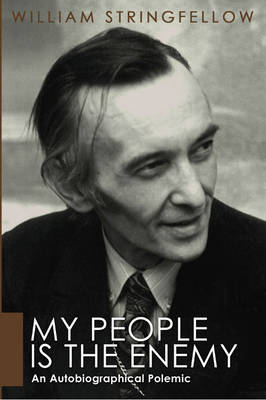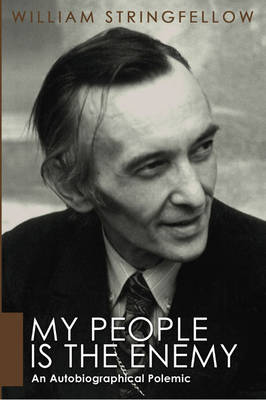
Je cadeautjes zeker op tijd in huis hebben voor de feestdagen? Kom langs in onze winkels en vind het perfecte geschenk!
- Afhalen na 1 uur in een winkel met voorraad
- Gratis thuislevering in België vanaf € 30
- Ruim aanbod met 7 miljoen producten
Je cadeautjes zeker op tijd in huis hebben voor de feestdagen? Kom langs in onze winkels en vind het perfecte geschenk!
- Afhalen na 1 uur in een winkel met voorraad
- Gratis thuislevering in België vanaf € 30
- Ruim aanbod met 7 miljoen producten
Zoeken
€ 33,45
+ 66 punten
Omschrijving
It was to Harlem that I came from the Harvard Law School. I came to Harlem to live, to work there as a lawyer, to take some part in the politics of the neighborhood, to be a layman in the Church there. It is now seven years later. In what I now relate about Harlem, I do not wish to indulge in horror stories, though that would be easy enough to do."" In this extraordinary and passionate book, William Stringfellow relates his deep concern with the ugly reality of being black and being poor. As a white Anglo-Saxon, Mr. Stringfellow does not try to speak for African Americans and Puerto Ricans in the Harlem ghetto, but, as a lawyer, he graphically underlines the failure of the American legal system to provide equal justice for the poor. And, as a Christian who lived for seven years on what the New York Times called the worst block in New York City, he challenges the reluctance of the churches to be involved in the racial crisis beyond the point of pontification."" Few white men have shared such experiences; certainly none has expressed them so eloquently, or ominously. . . . The most disturbing document since James Baldwin's 'The Fire Next Time'. . . . It is neither shouting nor scare journalism. It is a map of hell that might explode tragically at any moment."" --William Hogan, San Francisco Chronicle A worthwhile contribution to the American conscience at a time when it has at last decided to admit its shame. . . . Recommended to the policy makers who are charged with the practical expiation of this guilt."" --Michael Harrington, the New York Times Stringfellow has written a layman's sermon that cries out against both the churches and the people, in the manner of biblical days."" --Associated Press William Stringfellow was a practicing attorney and a prominent Episcopalian layman who frequently contributed to legal and theological journals. After his graduation from Harvard Law School, he practiced some years in the East Harlem neighborhood in New York City. He was a visiting lecturer at several law schools and lectured at theological seminaries across the country. Stringfellow authored more than a dozen books, including 'A Private and Public Faith', 'An Ethic for Christians and Other Aliens in a Strange Land', 'Conscience and Obedience', 'Count it All Joy', and 'Instead of Death'.
Specificaties
Betrokkenen
- Auteur(s):
- Uitgeverij:
Inhoud
- Aantal bladzijden:
- 166
- Taal:
- Engels
- Reeks:
Eigenschappen
- Productcode (EAN):
- 9781597523226
- Verschijningsdatum:
- 1/08/2005
- Uitvoering:
- Paperback
- Formaat:
- Trade paperback (VS)
- Afmetingen:
- 142 mm x 217 mm
- Gewicht:
- 213 g

Alleen bij Standaard Boekhandel
+ 66 punten op je klantenkaart van Standaard Boekhandel
Beoordelingen
We publiceren alleen reviews die voldoen aan de voorwaarden voor reviews. Bekijk onze voorwaarden voor reviews.









